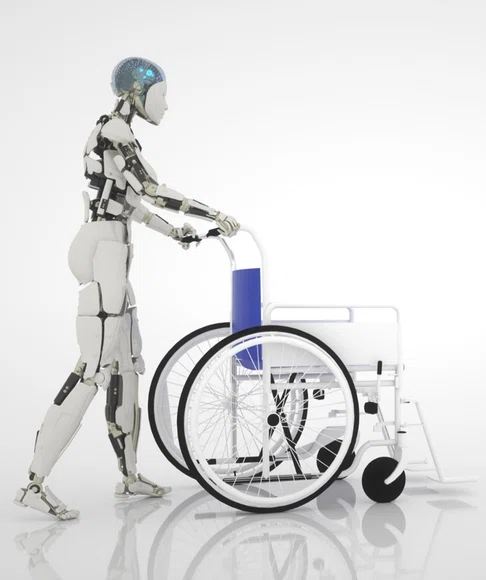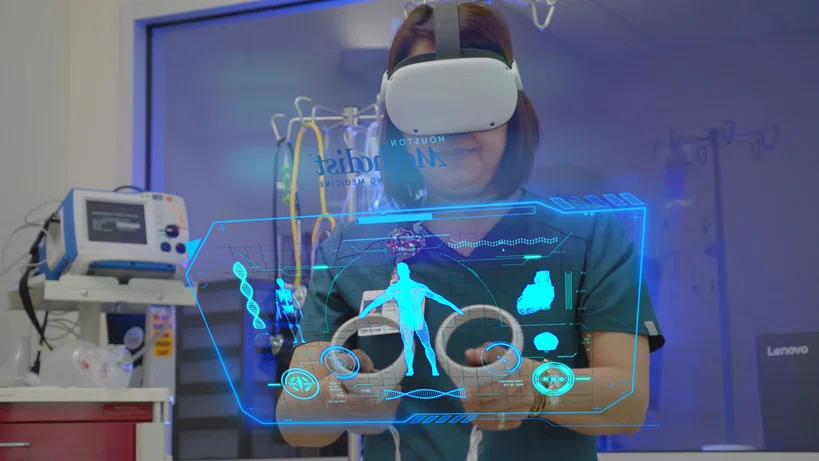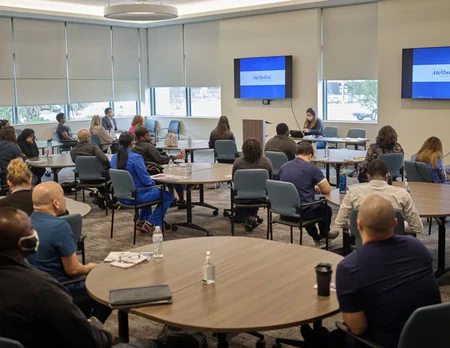

In this
issue

WELCOME
NURSING SCIENCE

Attitudes toward the use of humanoid robots in healthcare

Preparing for the Future by Understanding the Past
EDUCATION
PRACTICE
PROFESSIONAL DEVELOPMENT
FROM OUR TEAMS

Looking to the Future with our Patient Care Assistants

The Future of Nursing is Bright…But What if Being a Nurse is Not for You?

ABOUT DISCOVERN
EDUCATION
A Whole New World: Virtual Reality and Artificial Intelligence in Nursing Education
By Deepa Lalu, MSN, RN-BC
By Deepa Lalu, MSN, RN-BC
4 MIN READ


Using Artificial Intelligence (AI) and Virtual Reality (VR) in our everyday lives sounds like something out of a futuristic movie. However, we’re living in that future with AI embedded in our phones, computers and other technology. VR is also slowly becoming a popular tool for entertainment, business and education. Although it’s easy to imagine these tools as just conceptual, these technologies have also encroached the world of nursing education.

Virtual Reality (VR) is an incredible tool that can be used in nursing education. VR replaces sensory inputs like auditory, visual, tactile and olfactory senses with digital inputs (Choi et al., 2022). The ability to create digital environments that can fully immerse someone into that world provides infinite possibilities for nursing education. This technology can allow nurses that are uncomfortable with a particular skill the opportunity to attempt that skill on a “patient” without causing actual harm. VR also has the potential to help nurses develop experience with high-risk, low-frequency skills. It is a versatile tool that can even help facilitate team dynamics by allowing nurses to work together in the virtual world. VR has even been shown to improve “clinical skills such as IV catheter insertion, urinary catheterization, basic life support, or needlestick prevention” (Choi et al., 2022).
Artificial intelligence (AI) is an incredible tool that we unknowingly use in our everyday lives. AI is defined as “technology that enables a computer system or computer-controlled robot to “learn, reason, perceive, infer, communicate, and make decisions similar to or better than humans” (Buchanan et al., 2021). This is the same kind of technology that helps your favorite streaming platform figure out which movie you would be most interested in. These helpful tools that help streamline our day are also the basis of technology that could help develop critical thinking in nurses.
The use of AI can be beneficial in nursing education by allowing the computer to determine where knowledge gaps for participants may be. Using this information, nursing educators can then tailor content to the individual participant. These tools can also help nurses develop critical thinking through chatbots, video-based case studies and many other modalities. These programs provide a scenario, evaluate the participant’s responses, and then create a learning plan based on their responses. This allows for the subject matter to be specific to the learner’s needs.
The use of these kinds of technology in nursing education can help develop better cognitive and psychomotor skills (Choi et al., 2022). It can also be utilized in many different settings and areas of nursing education. Nursing education has the potential to be significantly altered with these resources; however, in doing so, the learner can develop several sets of skills as well.
References:
Choi, J., Thompson, C. E., Choi, J., Waddill, C. B., & Choi, S. (2022). Effectiveness of immersive virtual reality in nursing education: Systematic review. Nurse Educator, 47(3), E57-E61.
Related Articles

PROFESSIONAL DEVELOPMENT
Attitudes toward the use of humanoid robots in healthcare

EDUCATION
Upcoming Courses
Contact us at CNREPHelp@houstonmethodist.org
Questions or comments?
© 2022. Houston Methodist, Houston, TX. All rights reserved.







